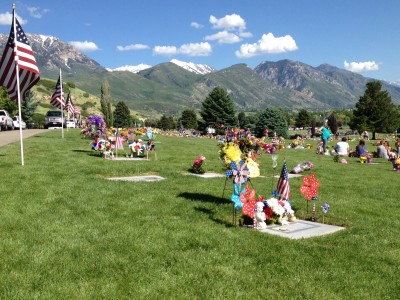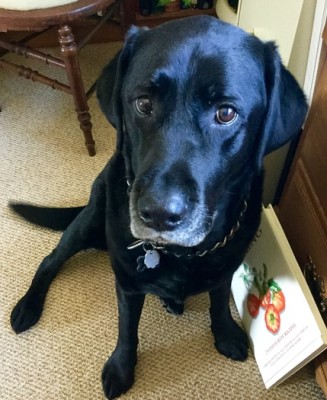
It’s Memorial Day in the United States. Many people will be celebrating with backyard picnics and barbecues. Many outdoor swimming pools and parks will open. It is a long weekend, that for many, marks the beginning of summer.
I remember the first Memorial Day I experienced in the United States, in 1987. I was driving past a large cemetery in Provo, Utah. Cut flowers, bright yellow “mums” in potted plants, and small flags dotted nearly every gravesite. It was impressive.
For many, Memorial Day is opportunity to pay tribute to people in military service, past and present. At the airport today, the gate agent invited 30 seconds of silence to honor the military personnel on board our flight. In the crowded and cacophonous terminal, I was drawn to this simple and kind pause.
Memorial day has also become a day to generally honor people who have passed. My former spouse’s family had a great tradition of cutting flowers from their gardens, peonies if the growing season permitted, to place at the grave site of grandparents and other family. Then her dad would tell a story or two. It was playful. Often with laughter. Sometimes with tears. It was an invocation to remember.
Remember.
For the last year when I’ve often been starting leadership events with an invocation to remember. Though many have come to learn what they think are new participative methodologies and frameworks, I often say, “I think we have come to learn and remember some things that we already know. We’ve come to remember some essential aspects of what it means to be in learning together, what it means to take journey together, and what it means to count on each other. Remember kindness. Remember curiosity. Remember the power of sharing a story as a way of learning together. Remember a quality of trust. Remember honesty together. Remember hope together.”
I don’t speak those words as a way to falsely motivate people, though I’m happy that they do settle participants into a simple narrative of what we are about to do for two to three days.
Remember.
Sometimes remembering, memorializing, is about invoking the past. Sometimes, perhaps, the remembering is to realize that there is much that we already know about bringing a future into the present.

